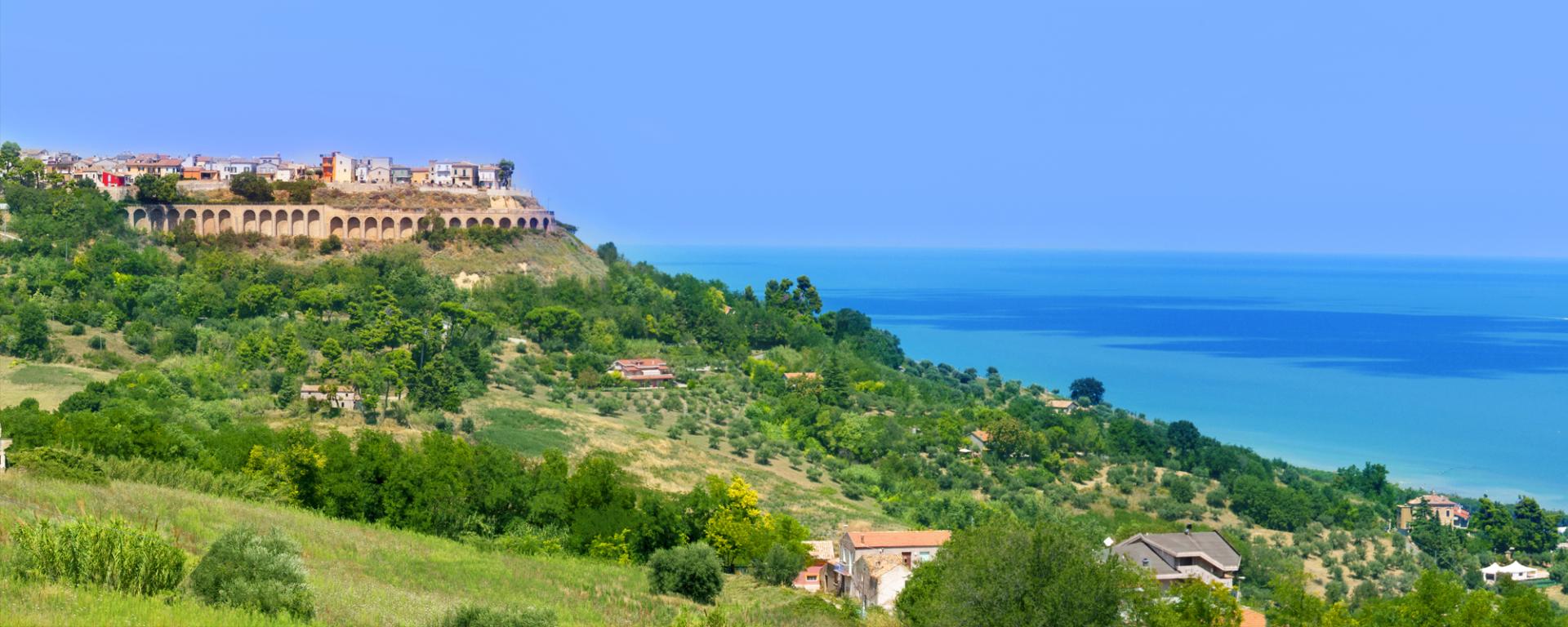
Silvi: seafaring tradition
The waters of the Adriatic Sea lap the coast of the Abruzzo coast, sometimes caressing it, others raging with the power of storms and tides.
And it is precisely the sea that has forged the character of peopl of its towns over the centuries, making fishing a fundamental resource: in this way the sea and fishermen's culture was born, with its heritage of stories, tradition, folklore and food and wine.
Seafaring tradition in Silvi is ancient and deeply rooted: numerous generations of fishermen's families have undertaken their activities in this town, making it one of the largest seafarers in Abruzzo, distinguishing themselves in a particular from the mid-nineteenth century up to the fifties of the nine hundred.
Before the advent of motorized fishing boats, as evidenced by splendid period photos, the beaches of Silvi were dotted with picturesque paranze, typical trawling boats with characteristic-coloured sails, with shades of yellow and red. The trawlers proceeded in pairs (from the Latin PAR: equal, equal) and each of them pulled the wing of a trawl net. These sailing boats were flanked by smaller wooden boats called lancette. With the modernization of the navy, they were replaced by motorboats and lampare.
Fishing has always played the role unifying the two main nucles of the town: Silvi Marina (on the costa) and Silvi Paese (on the hills). In fact, there were many fishing families who lived in the village and right here around the mid-nineteenth century a small shipyard was opened for the construction of boats. Once ready, boats were lowered "to the marina" (to the beac) by means of an ingenious system of beams, ropes and pulleys which were used to literally slide the boats from the hills to the coast, with the help of human strength and oxen, which acted as a counterweight along the steep sections of the trail.
The bond of fishermen with the sea can be defined ablessing andacurse. Although immersed in the beauty of nature and water, the life of the "li marinar" (fishermen) was hard and full of sacrifices: long days and nights at sea, bathing in the icy waters even in the most hostile seasons, the pain of the women who remained at home waiting. There are also many anecdotes about some legendary fishermen, almost mythical figures who “scrillej lu fiumminand sotto a li pit” (they lit matches under their heels) and si bivej lu vin nir chi li fillichj (they drank red wine with figs) without having any digestive problems.
In this picturesque setting, the maritime culinary tradition of Silvi comes to life, ancient recipes linked to the life of fishermen reported on today's tables: first of all is the rich and very tasty "Brodetto alla silvarola", the traditional fish soup. Lu brudett or lu vridett (as it is called in dialect) was originally a poor dish that the fishermen prepared with all their unsold catch, mainly made up of small fish, difficult to sell (zanchette, cod, sea cicadas, red mullet, cuttlefish). The soup involves slow and delicate cooking of the ingredients, which are immersed in the traditional tomato sauce and should not be stirred with forks or spoons, it is simply necessary to vuscicare (shake) the pan slowly.
Fish brodetto is widespread along the entire Abruzzo coast and each town offers its own variant of preparation, but the love for this traditional dish is really deep, so much so that Giulio Sigismondi, one of the greatest dialect poets of the region, dedicated the dialect song "L'arta cchiù prelibate" (1947), which in addition to describing a scene of sea life, brings us back to the preparation process of the soup:
[…]Oh quand'è bell'a fa' lu marinare, lu marinare
lu pesce a ripurtà nghi lu panare, nghi lu panare
pripare nu brudette, micce nu risciulette,
micce na cianghittelle, lu merluzzette, na sbanattelle,
micce la siccitelle, micce la panucchielle...
N'arte chiù prelibate ngi sta a lu monne, larillirà!
Still among the dishes of the culinary tradition linked to the sea of Silvi we can list spaghetti with paparazze (as the clams are called locally), pipindun and sardell sfritt (peppers with sardines fried in oil and chilli) and papalin, blue fish of very small cut prepared with batter.
Bibliography:
De Carolis Lamberto, Silvi – storia, folclore e turismo (Edigrafital - Teramo 1970)
Spitilli Giovanni, Silvi – storia, leggenda, realtà (Ursini- Catanzaro 1999).
Costantini Franco- Ottavio Scianitti, Per le vie del Borgo (Silvi 15, Tipografia Hatria 2016).
Martocchia Paolo, Le perle di Silvi (Grafiche Martintype, Colonnella 2014).
Pradelli Molinari Alessandro, La cucina abruzzese, Newton & Compton, Roma 2000)
From the web:
https://www.ilcentro.it/teramo/silvi-ricorda-la-tragedia-della-banda-1.1609946
https://www.rete8.it/cronaca/centenario-della-tragedia-della-banda-musicale-giornata-della-memoria-per-silvi-e-chieti
Francesco Bonomi, Dizionario etimologico della lingua italiana ONLINE
https://www.folkmusicworld.com/larte-cchiu-prelibbate-musica-popolare-abruzzese
https://www.ilcentro.it/teramo/il-brodetto-alla-silvarola-diventa-un-prodotto-doc-1.454570

 IT
IT